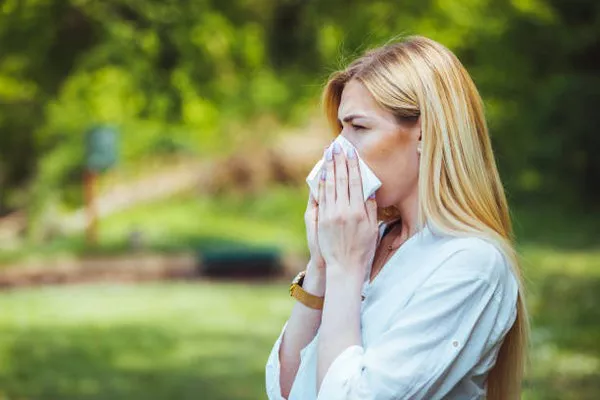A sweeping report from the European Academy of Allergy and Clinical Immunology (EAACI) has quantified the staggering economic impact of hay fever, revealing billions in lost productivity and healthcare expenses. The study, which analyzed data from 30 countries, found that hay fever costs the global economy over €150 billion annually—more than previously estimated.
The breakdown is striking:
Workplace losses: Absenteeism and “presenteeism” (reduced productivity due to symptoms) account for €100 billion. Employees with untreated hay fever are 30% less productive during peak season.
Healthcare systems: Doctor visits, medications, and emergency care cost €40 billion, with hospitalizations for severe cases (e.g., asthma exacerbations) adding €10 billion.
Indirect costs: This includes €5 billion in car accidents linked to drowsiness from antihistamines.
Dr. Luca Bianchi, the report’s lead author, emphasized, “Hay fever is often dismissed as a minor nuisance, but its ripple effects are profound. A single sneeze can slow down an assembly line; brain fog from allergies can derail critical decision-making.”
The report highlights disparities in care access. In low-income countries, only 20% of sufferers receive proper treatment, compared to 60% in high-income nations. Over-the-counter medications are often unaffordable, and specialist care is scarce. “In rural India, people resort to home remedies like turmeric milk, which may soothe but don’t control inflammation,” said Dr. Priya Mehta, an allergist in Mumbai.
To address these gaps, the EAACI proposes:
Policy changes: Classifying hay fever as a chronic condition to ensure insurance coverage.
Workplace adaptations: Allowing flexible hours or remote work during high-pollen periods.
Public awareness campaigns: Educating patients about early intervention to prevent complications like sinus infections.
Corporate responses are emerging. In Japan, some companies now provide free air purifiers and pollen-filtering masks. In Sweden, “allergy leave” is being piloted in sectors like transportation.
The report also critiques the pharmaceutical industry for prioritizing lucrative markets over global needs. “We need affordable generics and telehealth options for underserved regions,” said Dr. Bianchi.
Looking ahead, researchers urge integrating hay fever into climate change discussions. “With pollen seasons worsening, the economic toll will only rise,” warned Dr. Mehta. “This isn’t just a health issue—it’s a socioeconomic time bomb.”
You Might Be Interested In:
- Alarming Rise in Antibiotic-Resistant Skin Infections Leading to Severe Rashes
- New Antipyretic Drug Shows Promise in Clinical Trials
- Breakthrough in Understanding Fever’s Role in Immune Response

